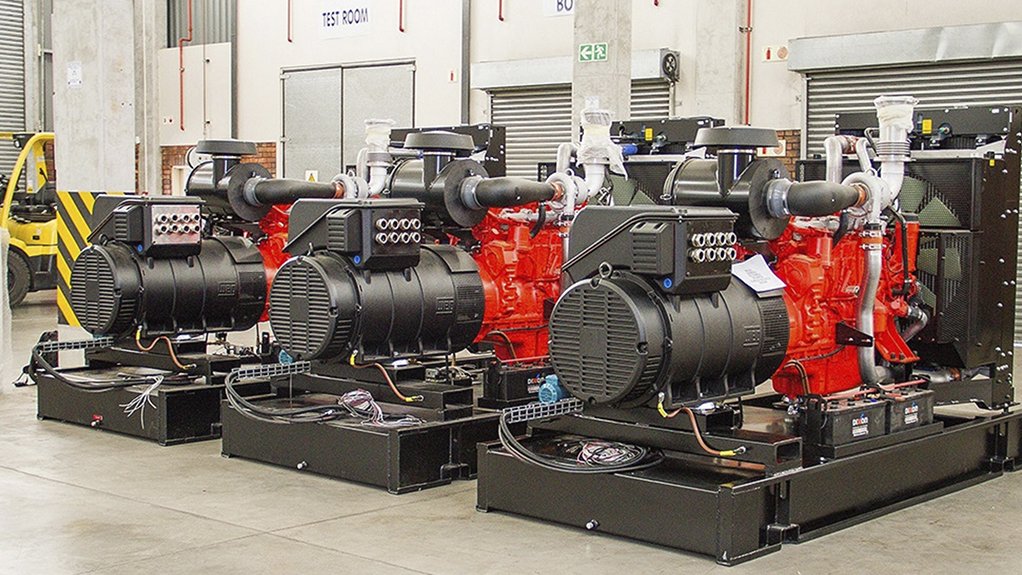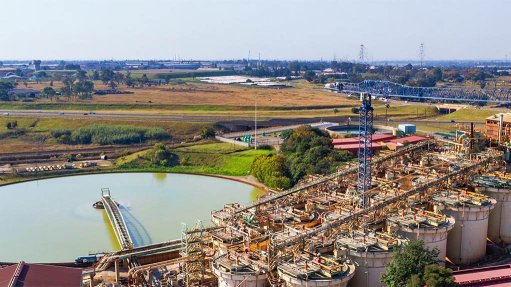Genset failure can be dangerous



MULTIPLIED Hospitals will often have back-up gensets all in the same room, increasing the potential risk
MICHAEL VAN NIEKERK Proper maintenance of gensets is essential
Generator set (genset) failure owing to a lack of proper maintenance poses a significant business risk, says fire safety company ASP Fire CEO Michael van Niekerk.
Backup power supply systems such as gensets are critical to reduce overall electricity demand during load-shedding. However, it is vital that such important equipment is maintained properly and serviced regularly to be able to cope with such outages, Van Niekerk says.
One safety concern is with regards to gensets’ fuel supply. This can range from an integral tank at the base of the genset to a 2 200 ℓ bulk-to-farm tank or a 210 ℓ drum.
“Here the danger is in the presence of flammable liquids, especially in terms of refuelling and any spillage,” he points out.
Another safety issue is vegetation or combustible material encroaching on a genset, which can often be tucked away somewhere out of sight and left to become overgrown. The genset itself is a potential source of fire ignition owing to the high temperatures of the manifold. If the genset is indoors, these temperatures can be considerable, especially if the ventilation is inadequate.
“Proper maintenance is therefore essential,” Van Niekerk says.
If an oil filter has not been screwed on tightly enough, for example, it can result in an oil leak. If oil sprays onto a hot manifold as a result of this, a fire will ignite. Thereafter, the temperature will build quickly to a point where entrance into such a room is near impossible.
Companies and individuals often lack the correct fire-fighting equipment to deal with genset fires. For example, a dry-chemical fire extinguisher will douse the flames, but will not cool down any hot surfaces. A carbon-dioxide fire extinguisher, on the other hand, might cool down the overheated genset itself, but this can damage the equipment owing to thermal shock.
Gensets, as a standby power source, are essential to the day-to-day operations of institutions such as financial services and medical care. Hospitals, for example, will often have backup gensets – often all in the same room. If a fire breaks out in one genset, the rest of the equipment is immediately at risk.
Solutions
Van Niekerk says ASP Fire recommends an automatic fire-suppression system for such environments. Such gensets constitute unmonitored equipment, with a high fire hazard factor owing to the presence of both flammable liquids and combustible products, as well as electricity.
“The probability of something going wrong may be slim in the mind of the end-user but, if it does, the consequences can be potentially disastrous and even fatal,” he warns.
In terms of fixed fire-suppression systems, a range of options is available. Sprinklers are an obvious choice but this depends on whether or not such a system has been installed already. If not, the cost can be prohibitive because sufficient hydraulic capacity has to be guaranteed, which means that cheaper and more effective alternatives need to be investigated.
The next best option is a clean-gas fire-suppression system.
“The problem with gensets and the heat they produce is that the rooms they are located in are normally ventilated, which compromises the integrity of the enclosure. If you discharge a gas system in this environment, it is therefore not possible to maintain the concentration of that gas for a sufficient period to suppress the fire. This means that clean-gas systems are not ideal in these scenarios,” Van Niekerk explains.
The third option is a water- or foam-mist fire-suppression system that only uses a minimal quantity of water. It is also far more cost-effective than the clean gas necessary to recharge the system. A water- or foam-mist fire-suppression system supresses a fire rapidly, cooling any remaining hot spots down to below the automatic ignition temperature.
A standalone water-mist fire-suppression system with mechanical activation should be inspected monthly. Gensets should be started up at least once a week to ensure the batteries are charged adequately. A cursory visual inspection will also reveal any potential problems or issues.
“It is all about risk mitigation, based on how integral the genset is to the business in question. While it is essential for financial service providers and hospitals to invest in the best systems possible, smaller end-users also need to look at the impact of genset failure or fire on their businesses,” Van Niekerk points out.
Article Enquiry
Email Article
Save Article
Feedback
To advertise email advertising@creamermedia.co.za or click here
Press Office
Announcements
What's On
Subscribe to improve your user experience...
Option 1 (equivalent of R125 a month):
Receive a weekly copy of Creamer Media's Engineering News & Mining Weekly magazine
(print copy for those in South Africa and e-magazine for those outside of South Africa)
Receive daily email newsletters
Access to full search results
Access archive of magazine back copies
Access to Projects in Progress
Access to ONE Research Report of your choice in PDF format
Option 2 (equivalent of R375 a month):
All benefits from Option 1
PLUS
Access to Creamer Media's Research Channel Africa for ALL Research Reports, in PDF format, on various industrial and mining sectors
including Electricity; Water; Energy Transition; Hydrogen; Roads, Rail and Ports; Coal; Gold; Platinum; Battery Metals; etc.
Already a subscriber?
Forgotten your password?
Receive weekly copy of Creamer Media's Engineering News & Mining Weekly magazine (print copy for those in South Africa and e-magazine for those outside of South Africa)
➕
Recieve daily email newsletters
➕
Access to full search results
➕
Access archive of magazine back copies
➕
Access to Projects in Progress
➕
Access to ONE Research Report of your choice in PDF format
RESEARCH CHANNEL AFRICA
R4500 (equivalent of R375 a month)
SUBSCRIBEAll benefits from Option 1
➕
Access to Creamer Media's Research Channel Africa for ALL Research Reports on various industrial and mining sectors, in PDF format, including on:
Electricity
➕
Water
➕
Energy Transition
➕
Hydrogen
➕
Roads, Rail and Ports
➕
Coal
➕
Gold
➕
Platinum
➕
Battery Metals
➕
etc.
Receive all benefits from Option 1 or Option 2 delivered to numerous people at your company
➕
Multiple User names and Passwords for simultaneous log-ins
➕
Intranet integration access to all in your organisation


















